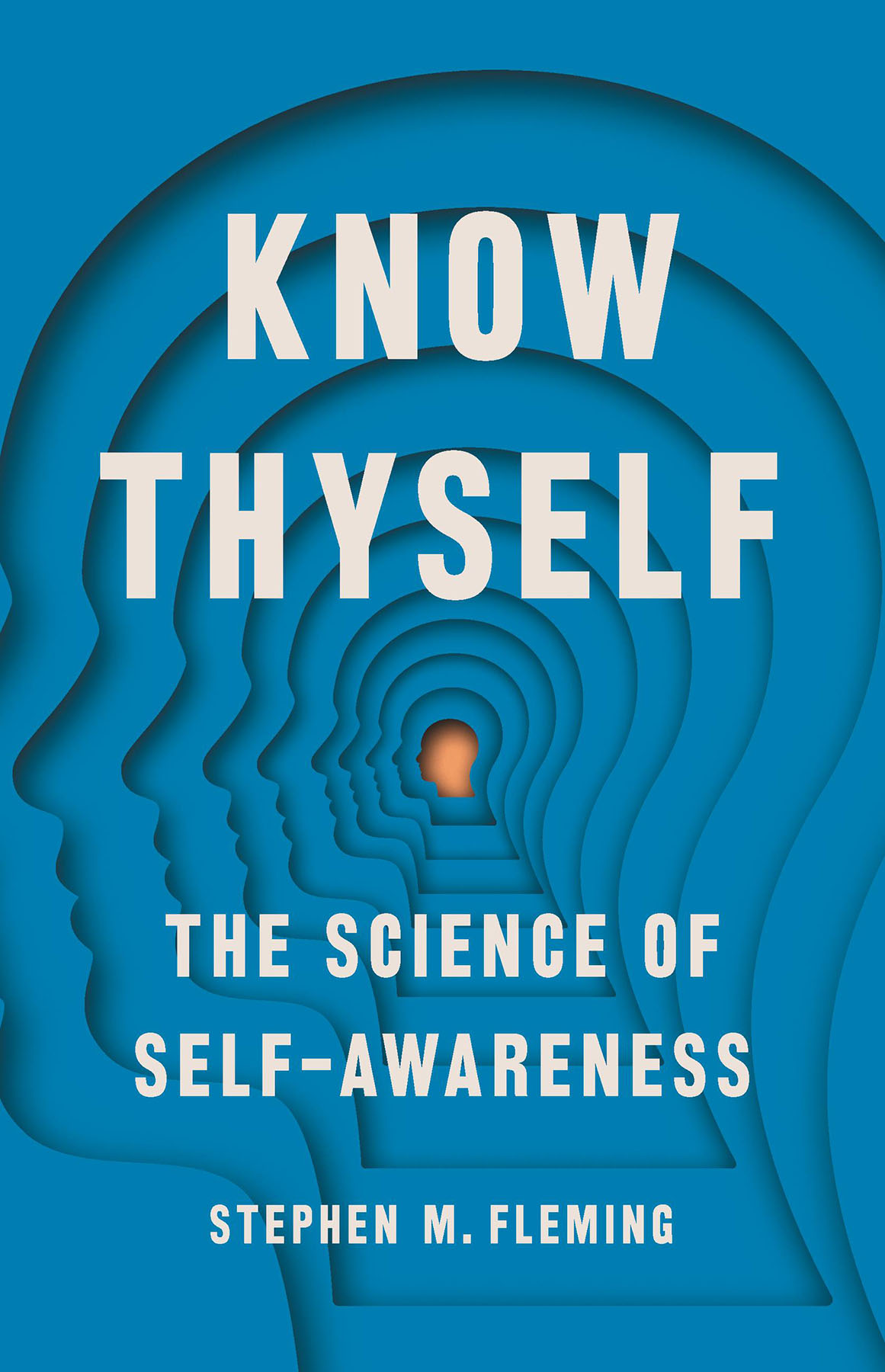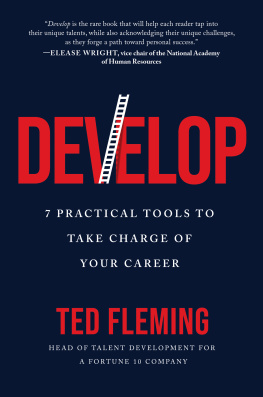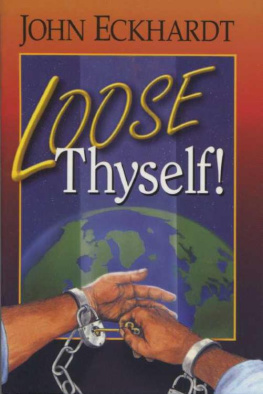Stephen M Fleming - Know Thyself
Here you can read online Stephen M Fleming - Know Thyself full text of the book (entire story) in english for free. Download pdf and epub, get meaning, cover and reviews about this ebook. year: 2021, publisher: Basic Books, genre: Religion. Description of the work, (preface) as well as reviews are available. Best literature library LitArk.com created for fans of good reading and offers a wide selection of genres:
Romance novel
Science fiction
Adventure
Detective
Science
History
Home and family
Prose
Art
Politics
Computer
Non-fiction
Religion
Business
Children
Humor
Choose a favorite category and find really read worthwhile books. Enjoy immersion in the world of imagination, feel the emotions of the characters or learn something new for yourself, make an fascinating discovery.

- Book:Know Thyself
- Author:
- Publisher:Basic Books
- Genre:
- Year:2021
- Rating:3 / 5
- Favourites:Add to favourites
- Your mark:
- 60
- 1
- 2
- 3
- 4
- 5
Know Thyself: summary, description and annotation
We offer to read an annotation, description, summary or preface (depends on what the author of the book "Know Thyself" wrote himself). If you haven't found the necessary information about the book — write in the comments, we will try to find it.
Know Thyself — read online for free the complete book (whole text) full work
Below is the text of the book, divided by pages. System saving the place of the last page read, allows you to conveniently read the book "Know Thyself" online for free, without having to search again every time where you left off. Put a bookmark, and you can go to the page where you finished reading at any time.
Font size:
Interval:
Bookmark:

Copyright 2021 by Stephen M. Fleming
Cover image copyright Bakhtiar Alfan / Shutterstock.com
Cover copyright 2021 by Hachette Book Group, Inc.
Hachette Book Group supports the right to free expression and the value of copyright. The purpose of copyright is to encourage writers and artists to produce the creative works that enrich our culture.
The scanning, uploading, and distribution of this book without permission is a theft of the authors intellectual property. If you would like permission to use material from the book (other than for review purposes), please contact permissions@hbgusa.com. Thank you for your support of the authors rights.
Basic Books
Hachette Book Group
1290 Avenue of the Americas, New York, NY 10104
www.basicbooks.com
First Edition: April 2021
Published by Basic Books, an imprint of Perseus Books, LLC, a subsidiary of Hachette Book Group, Inc. The Basic Books name and logo is a trademark of the Hachette Book Group.
The Hachette Speakers Bureau provides a wide range of authors for speaking events. To find out more, go to www.hachettespeakersbureau.com or call (866) 376-6591.
The publisher is not responsible for websites (or their content) that are not owned by the publisher.
Image of Adelsons checkerboard in used under CC-BY-SA-3.0 license; all other art copyright Stephen M. Fleming.
All figures created by the author unless otherwise noted.
Library of Congress Cataloging-in-Publication Data
Names: Fleming, Stephen M., author.
Title: Know thyself : the science of self-awareness / Stephen M. Fleming.
Description: First edition. | New York, NY : Basic Books, [2021] | Includes bibliographical references and index. Provided by publisher.
Identifiers: LCCN 2020045255 | ISBN 9781541672840 (hardcover) | ISBN 9781541672857 (ebook)
Subjects: LCSH: Metacognition. | Self-consciousness (Awareness) | Neurosciences.
Classification: LCC BF311 .F536 2021 | DDC 153.4dc23
LC record available at https://lccn.loc.gov/2020045255
ISBNs: 978-1-5416-7284-0 (hardcover); 978-1-5416-7285-7 (ebook)
E3-20210330-JV-NF-ORI
Discover Your Next Great Read
Get sneak peeks, book recommendations, and news about your favorite authors.

Explore book giveaways, sneak peeks, deals, and more.

For Helen and Finn
Imagine you arrive at your doctors office for an appointment to discuss some recent chest pains. You undergo a series of blood tests and scans, and a week later you return to the clinic, where your doctor reviews the results with you. The condition seems serious, and she briskly recommends surgery for a heart bypass. When you ask your doctor why she is confident the procedure is necessary, she walks you through her thought process, including the possibility that she is wrong and what being wrong might entail, before reiterating her advice that you undergo the surgery. What would you do?
Now imagine that, after you undergo a series of blood tests and scans, the data is fed into an artificially intelligent assistant, which confidently states that the condition seems serious and it would be desirable if you had surgery for a heart bypass. When you ask your doctor whether this is really necessary, she cant tell you; she doesnt know why the recommendation has been made. All she can say is that, when fed the full range of test data, the AI has been highly accurate in the past, and that it would be wise to trust it and proceed with the surgery. What would you do?
In the first case, the answer probably seems obvious: if the doctor is confident and able to explain her reasons for being confident, you feel you should trust her advice. In the second, however, it may not be so clear. Many of us intuitively feel that if a person or a machine is going to be making high-stakes decisions on our behalf, we should be able to ask them to explain why they have come up with a particular answer. Many of our legal frameworksthose that ascribe liability and blame for errorsare based on the notion of being able to justify and defend what we did and why we did it. Without an explanation, we are left with blind trustin each other, or in our machines. Ironically, some of the highest performing machine learning algorithms are often the least explainable. In contrast, humans are rapacious explainers of what we are doing and why, a capacity that depends on our ability to reflect on, think about, and know things about ourselves, including how we remember, perceive, decide, think, and feel.
Psychologists have a special name for this kind of self-awareness: metacognitionliterally, the ability to think about our own thinking, from the Greek meta meaning after or beyond. Metacognition is a fragile, beautiful, and frankly bizarre feature of the human mind, one that has fascinated scientists and philosophers for centuries. In the biologist Carl Linnaeuss famous 1735 book Systema Naturae, he carefully noted down the physical features of hundreds of species. But when it came to our genus, Homo, he was so captivated with humans ability for metacognition that he simply annotated his entry with the one-line Latin description Nosce te ipsumthose that know themselves.
Self-awareness is a defining feature of human experience. Take a student, Jane, who is studying for an engineering exam. What might be going through her head? She is no doubt juggling a range of facts and formulas that she needs to master and understand. But she is also, perhaps without realizing it, figuring out how, when, and what to study. Which environment is better, a lively coffee shop or a quiet library? Does she learn best by rereading her notes or by practicing problem sets? Would it be better to shut the book on one topic and move onto another? Can she stop studying altogether and head out with friends?
Getting these decisions right is clearly critical for Janes chances of success. She would not want to fall into a trap of thinking she knows a topic well when she does not, or to place her trust in a dodgy study strategy. But no one is giving her the answers to these questions. Instead, she is relying on her awareness of how she learns.
Our powers of self-reflection do not lose their importance when we leave the classroom or the exam hall. Consider the experience of James Nestor, an author and free diver. In his book Deep, Nestor recounts how he traveled to coastal locations in Greece and the Bahamas to report on free-diving tournaments. At each tournament, there is only one goal: to dive deeper than all the other competitors, all on a single breath. To prove that they have reached a particular depth, the divers retrieve a tag with a number emblazoned on it. If they pass out after surfacing, the dive is declared null and void. To be successful, professional free divers must be acutely self-aware of their ability to reach a depth while avoiding injury or even death. Slight underconfidence will lead to underperformance, whereas slight overconfidence may be fatal. Its telling that a large part of free divers training takes place on land, in psychological exploration of their underwater capacities and limitations.
Font size:
Interval:
Bookmark:
Similar books «Know Thyself»
Look at similar books to Know Thyself. We have selected literature similar in name and meaning in the hope of providing readers with more options to find new, interesting, not yet read works.
Discussion, reviews of the book Know Thyself and just readers' own opinions. Leave your comments, write what you think about the work, its meaning or the main characters. Specify what exactly you liked and what you didn't like, and why you think so.











